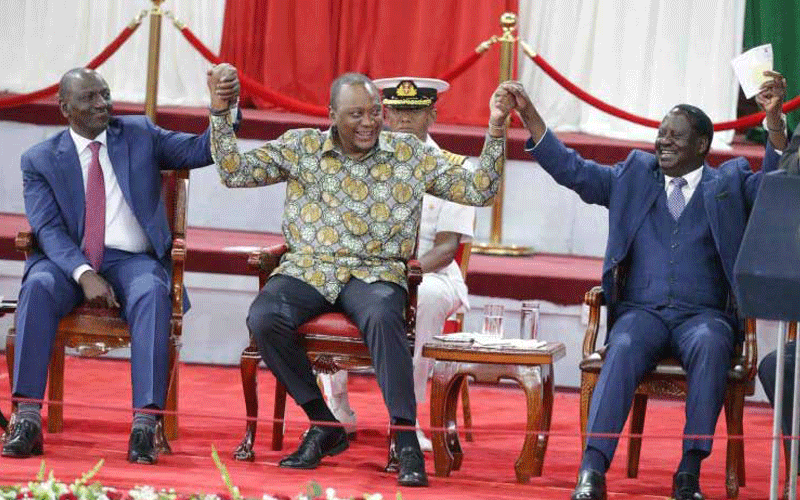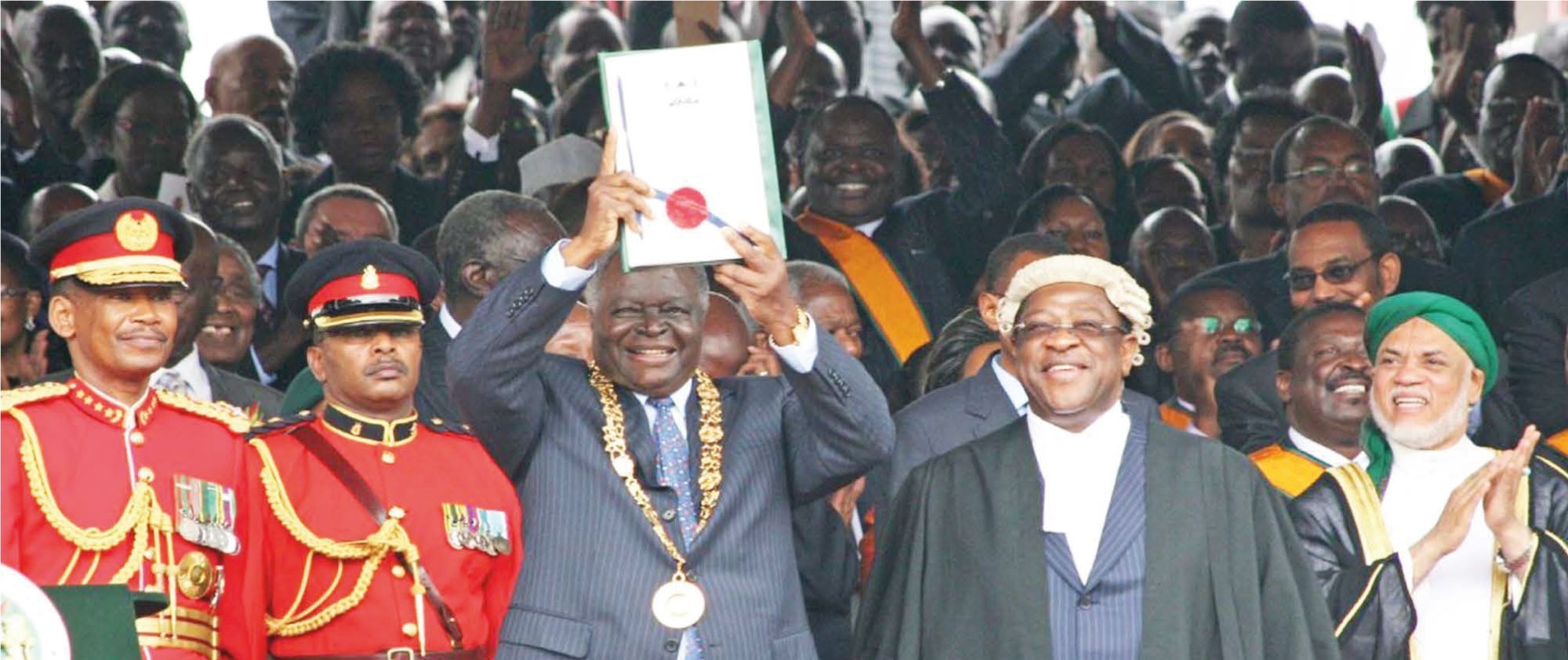Whose Constitution Is It Anyway? How the 2025 Amendment Bill Could Shape the Future of Kenya And Why You Should Care!
Kenya’s 2010 Constitution was a turning point for the nation. It was a fresh start, rooted in the people's voice, aiming to bring fairness, rights, and democracy. But today, some politicians want to change it again, not through broad public debate, but with quick moves that threaten its core. This article dives into what’s happening. It explains why safeguarding the Constitution is vital for everyone’s future.
Back in 2010, Kenyans made history. Nearly 70% of voters said yes to a new constitution. That referendum wasn’t just a legal shift, it was a powerful signal from citizens demanding fairness, accountability, and a fresh start. When crowds gathered at Uhuru Park to usher in the new laws, it felt like more than words on paper. It was a national reset button, pressed with hope.
Major Attempts to Amend the Constitution Since 2010
But rewriting the rules of governance is easier said than done. Over the years, there have been several major attempts to amend the constitution, some ambitious, some stalled, and some struck down by courts. Together, they show just how difficult lasting reform can be.
-
2014: Cord Coalition Push – The opposition tried to reform institutions like the Independent Electoral and Boundaries Commission (IEBC). The effort collapsed after a dispute over the validity of collected signatures.
-
2018–2019: Punguza Mzigo Initiative – Led by Dr. Ekuru Aukot, this drive focused on slashing government spending and fighting corruption. Despite gathering over a million signatures, county assemblies voted it down.
-
2018–2021: Building Bridges Initiative (BBI) – Backed by then-President Uhuru Kenyatta and opposition leader Raila Odinga, BBI proposed sweeping changes. The courts ultimately blocked it, ruling that the President could not initiate such amendments.
-
2023–2024: NADCO Talks – A bipartisan team co-chaired by Kalonzo Musyoka and Kimani Ichung’wah drafted new proposals to foster peace and inclusion. Their suggestions are still under legal and political scrutiny.
What’s in the 2025 Constitutional Amendment Bill?
The Constitution of Kenya Amendment Bill 2025—currently in its second round of debate in Parliament—stems directly from the NADCO Report, the product of bipartisan talks aimed at addressing political tensions and governance gaps. The bill proposes embedding three funds into the Constitution, raising questions about the balance between service delivery and political influence.

Here’s what the bill aims to establish:
-
National Government Constituencies Development Fund (NG-CDF) – Designed to channel development funds directly to MPs for projects in their constituencies.
-
Senate Oversight Fund – Intended to boost Senators’ ability to monitor and hold county and national governments accountable.
-
National Government Affirmative Action Fund – Focused on uplifting marginalized groups, especially women, youth, and persons with disabilities.
All these aim to “provide access,” “empower oversight,” and “support affirmative action,” as the bill says.
Critical Analysis of the Proposed Constitutional Amendments
Necessary Reform or Political Overreach?
Proponents argue that the proposed funds will bring services closer to the people. However, critics contend that these funds may be redundant and susceptible to misuse. The Katiba Institute and civil society partners have filed a petition at the High Court, asserting that the amendments are "superfluous and inconsistent with the Constitution," and that duplicating existing funds could undermine prudent public finance principles and the separation of powers.
Democratic Risks: Blurring Lines of Power
The International Commission of Jurists (ICJ) Kenya has expressed concern that the amendments could erode democratic safeguards. In a statement, they warned that the bill "constitutes an assault on the democratic safeguards Kenyans hold dear" and emphasized that power should be exercised as a covenant with the people, not for personal gain.
Legal Red Flags: Are the Rules Being Followed?
Legal experts have raised alarms about the constitutional validity of the amendment process. The Katiba Institute argues that the bill requires a referendum under Article 255 of the Constitution, as it affects Parliament's functions and devolved structures. They also fault Parliament for failing to enact a referendum law, 14 years after the 2010 Constitution mandated it.
Public Participation: Token or Genuine?
The National Council of Churches of Kenya (NCCK) has emphasized the necessity of public involvement in constitutional amendments. General Secretary Canon Chris Kinyanjui stated, "It is a major concern for Kenyans that the National Assembly is seeking to effect the recommendations of the Committee... without recourse to the people of Kenya." The NCCK urges that any debate about amending the Constitution must be preceded by robust discourse by the citizens.
The Risks and Consequences of Undermining the Constitution
Political Exploitation and the Erosion of Democratic Safeguards
When constitutional amendments are crafted to benefit a few, democracy suffers. They risk becoming tools for entrenching political power, not enhancing governance. Over time, such changes can erode public trust, weaken institutional checks, and pave the way for leaders to act without scrutiny or consequence. As legal analyst Bobby Mkangi noted, “Amendments must never be about short-term interests or political convenience. They must be about the people.”

The Role of Citizens: Vigilance and Civic Engagement
Kenya’s Constitution belongs to its citizens, not its politicians. Defending it requires more than passive consent. It demands active, sustained engagement. Public participation, court challenges, open debates, and media scrutiny all play a critical role in holding power to account.
As the National Council of Churches of Kenya recently emphasized, “Any changes to the Constitution must come from, and be validated by, the people.” That means staying informed, asking hard questions, and pushing back when transparency is lacking.
A Constitution Worth Defending
The 2010 Constitution was a defining moment for Kenya, a bold declaration of people power. It was meant to serve generations, not political cycles. The current push to amend it must be approached with caution, clarity, and the public good in mind.
Every Kenyan must ask: Do we want a constitution that protects citizens or one that protects politicians?
The answer will shape not just laws, but lives. The Constitution is more than a document, it’s a promise. And it’s a promise worth defending.
What's Your Reaction?














































































































